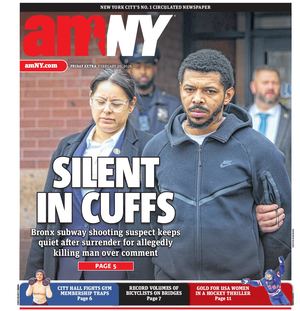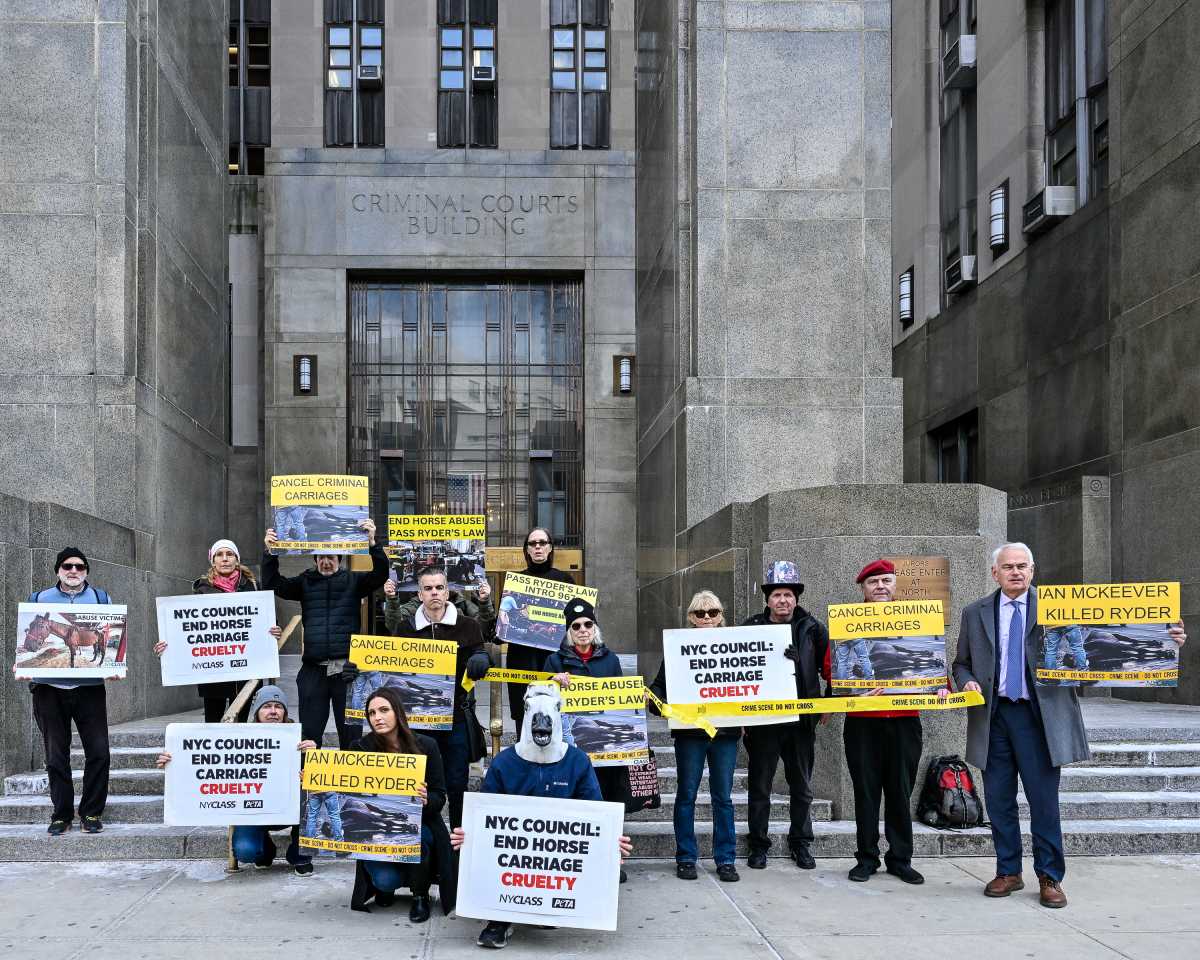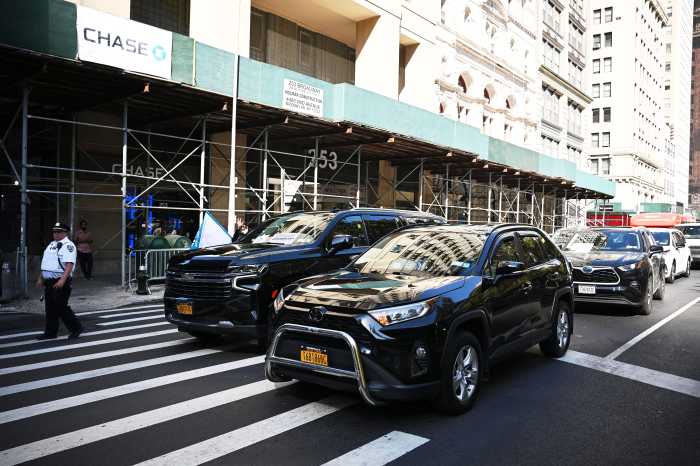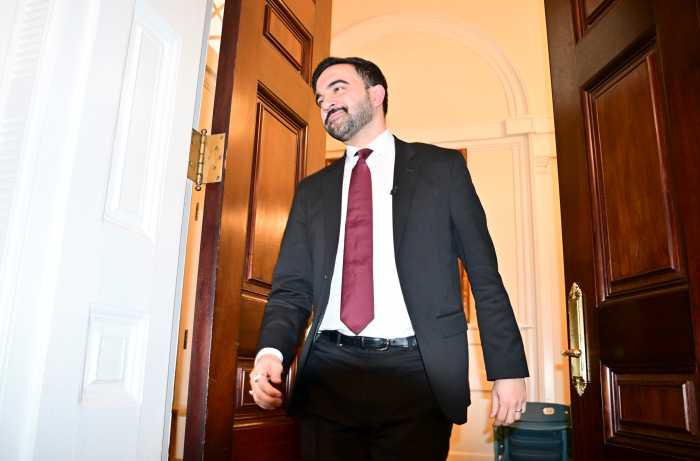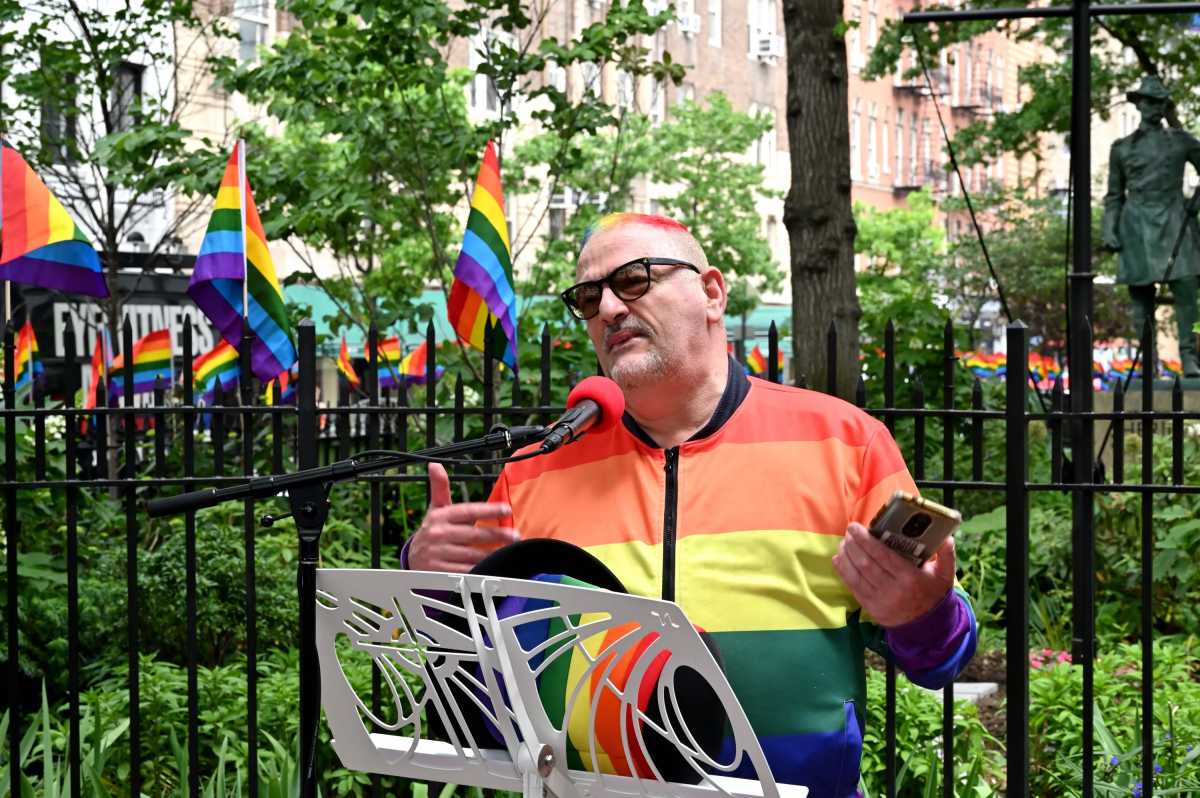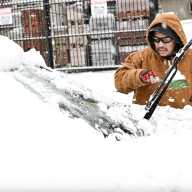The Long Island man who faced animal cruelty charges after a NYC carriage horse collapsed was found not guilty in court on Monday.
The trial against Ian McKeever, a veteran carriage driver, began on July 14 in a Lower Manhattan criminal court after he was charged in 2023 for abusing the horse, named Ryder, to the point of collapse while he suffered health issues.
Jurors found him not guilty.
Manhattan DA Alvin Bragg, whose office prosecuted McKeever, shared a statement about the case.
“All animals deserve to be treated with the utmost of care,” he said. “I thank the jury for dedicating their time to hear the evidence presented to them over these past five days. I also want to thank our prosecutors for presenting a thorough case based on the facts and evidence.”
McKeever appeared visibly emotional after the decision, according to a report in the news site, W42St.nyc.
“Justice was served,” he told reporters, according to the article. “I’ve never, ever abused a horse in my life — and this has just killed me, because I love horses. I always have, and I always will.”
Ryder, an older carriage horse, collapsed on the street in Hell’s Kitchen during a 2022 heatwave. Videos circulated shortly after, showing his handler, McKeever, pulling reins on the horse, who appeared to be in distress.
Ryder died in October, and charges were filed against McKeever a month later.
Queens NYC Council Member Robert Holden called the July 21 verdict a “travesty of justice,” saying that McKeever knew the animal was being overworked.
“Ian McKeever knew Ryder’s true age; the horse was nearly 30 years old, the equivalent of a 90-year-old human, and still chose to force him to work on the scorching streets of Manhattan,” Holden said in a statement. “As seen in widely circulated video footage, McKeever was caught whipping Ryder as the horse collapsed from exhaustion, suffering and dying before the eyes of New Yorkers.”
Holden is the primary sponsor of Ryder’s Law, legislation that would outlaw the horse carriage industry in NYC.
“This decision ignores the cruelty and inhumanity of what happened,” he said. “I will not give up on ending this barbaric and outdated industry once and for all. I strongly urge my colleagues and the public to stand with me in fighting for the protection of animals across our city.”
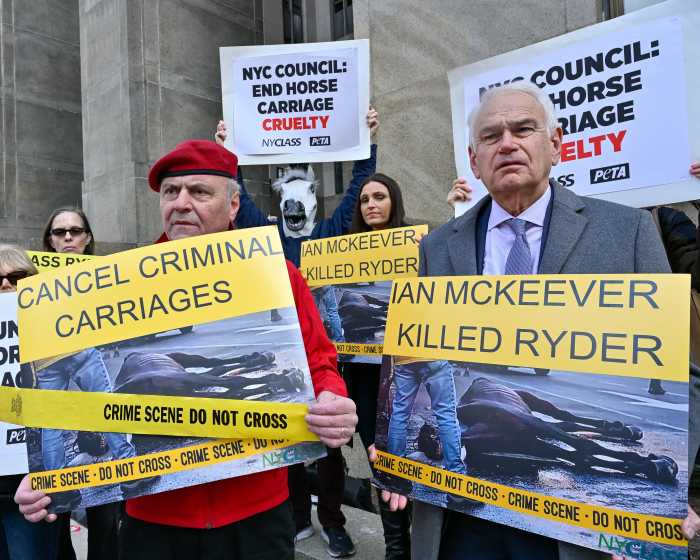
In the meantime, Bragg called on New Yorkers to call his office’s hotline at 212-335-9040 to report instances of animal abuse.
“We will continue to investigate and bring cases where animals are harmed and mistreated,” he said.
Mayoral candidate Curtis Sliwa has repeatedly called for an end to the horse carriage industry in NYC.
“When I’m mayor, we will eliminate once and for all horse-drawn carriages in NYC,” he said. “They will be replaced with mechanized carriages as they have been in most parts of the world. Clearly, we saw the driver whip Ryder, and the owners and operators lied about the horse’s condition, his age, and supposedly where he spent his last days. The industry must be stopped.”
Carriage driver and Transport Workers Union Local 100, the union that represents Central Park’s horse-drawn carriage drivers, shop steward Christina Hansen, shared a statement with amNewYork about the case, saying the “vilification of all carriage drivers” has to “stop.”
“We will only accept humane care for all carriage horses, including proper medical care and treatment,” she said. “Since this incident, the union has implemented several significant reforms and enhancements, including ongoing consultation with a nationally recognized equine veterinarian, immediate access to an equine hospital, and greater oversight. Carriage drivers like me are in this business because we love animals, want to spend all day with horses, and care deeply about them.”
Also Read : https://www.amny.com/police-fire/arsonist-nypd-vehicles-brooklyn-arrested-feds/
